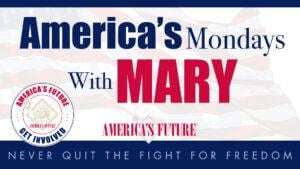
Americans who do not suffer from leftist “wokeness” have found it difficult to understand that retail businesses can be compelled to serve a customer — especially when it offends the moral or religious views of the business owner.
This issue entered the American consciousness when Colorado cakemaker Jack Phillips came under attack for “discrimination” for refusing to bake a cake. The charges against Phillips were filed under the Colorado public accommodations law. Colorado is not alone, as some version of these type of laws exist in all but five states. They are ostensibly designed to prevent discrimination, but their profoundly dangerous effect is to require business owners to leave their moral and religious views at home, and not allow them to affect how they conduct business.
Masterpiece Cakeshop
Jack Phillips owns and operates a small Christian business in Colorado, Masterpiece Cakeshop. A same-sex couple demanded he create a custom cake for their same-sex wedding. He explained that his religious faith did not permit him to participate in or facilitate a religious celebration that he believed to be unbiblical. The same-sex couple refused to use any of the many other bakers who were willing to offer their services, but rather complained about Phillips to the Colorado Civil Rights Commission. That state agency took on their cause, and Colorado courts affirmed its findings against Phillips. Neither Phillips’ religious views nor the First Amendment were considered to provide a defense since he was operating a business offering services to the public.
Phillips’ battle began in 2012, and it continues to this day.
The case made its way to the U.S. Supreme Court, and the decision of the Colorado court was reversed and remanded, giving Smith a Pyrrhic victory because the Supreme Court ruled in his favor only because Colorado showed “clear and impermissible hostility toward [his] sincere religious beliefs.” Masterpiece Cakeshop, Ltd. v. Colo. Civil Rights Comm’n, 584 U.S. 617, 634 (2018).
Last year, he was sued again for refusing to bake a pink and blue birthday cake celebrating the “female transgender” identity of a biologically male Colorado lawyer. At this point, “Phillips has been involved in legal trouble for more than a decade in cases that implicate free speech and the place of Christians in public life as changes to anti-discrimination laws provide more avenues for lawsuits against them.”
The legal organization that provided assistance to Phillips decided not to attack the basic jurisdictional principle Colorado was violating — that no government has the authority to compel anyone to participate in behavior they believe to be immoral. Rather, this legal group only asked the courts to carve out a small exception to give special First Amendment rights to “artists” (cake artists, floral artists, website artists, etc.). This group has expressly conceded that all other Christian businesses (such as those that rent chairs for weddings) could be compelled to conduct business against their moral code. Thus, the core reason that these laws are unconstitutional has yet to be asserted and addressed.
Origins of Public Accommodation Laws
Today’s “public accommodations laws” apply to basically any business, but historically, such laws only applied to a narrow category of businesses. In England, the common law rule developed that the innkeeper was bound to provide food and lodging for any traveler who sought refuge in the inn. Then, travel by horse and by foot was difficult, and places of lodging were few and far between. If the local inn would not accommodate the traveler, the option would be to spend the night in the open, exposing them from facing danger from robbers and even animals. To address this problem, a narrow class of inns were required to serve all comers. The right was so narrow, it often was limited to providing lodging, but allowing the innkeeper to refuse to serve food. Later, certain modes of transportation, such as ships and trains, were deemed “common carriers” which also were required to provide service to all at standard rates.
In the 1964 Civil Rights Act, Congress enacted a national public accommodation law, primarily as a legal tool to prevent racial discrimination. At the time, many in both political parties believed the law to be unconstitutional even though it only applied to a few businesses (e.g., hotels, restaurants, and movie theatres) and prohibited on a few types of discrimination (“race, color, religion, or national origin”). Title II of this law was challenged in court and was upheld. The Supreme Court ruled that Congress could use its authority over interstate commerce to prevent hotels and motels from discriminating on the basis of race in renting rooms. Heart of Atlanta Motel, Inc. v. United States, 379 U.S. 241 (1964).
In recent years, “public accommodations” laws across many states have vastly expanded their scope. Public accommodations laws usually cover almost every conceivable type of business. Colorado’s “Colorado Anti-Discrimination Act (CADA)” covers “any place of business engaged in any sales to the public and any place offering services, facilities, privileges, advantages, or accommodations to the public.” Ranging far beyond racial discrimination, CADA expanded its coverage to include the vague categories of “sexual orientation, gender identity [and] gender expression.” C.R.S. 24-34-601(2)(a).
State Administrative Agencies
These state public accommodation laws can empower individuals whose business is refused to file suit directly against the businesses, but usually it is a state agency that brings an administrative action on behalf of the complaining party. If the complaining parties had to pay lawyers to file a complaint, few would bother. But when an agency takes on the cause, the activists who initiate the complaint pay nothing, but can receive huge cash awards. Since the costs of defending these actions can be crippling to small businesses, many businesses are compelled to sacrifice their convictions or close their business.
303 Creative LLC
Colorado’s law also would have threatened 303 Creative, LLC, a Christian website design business that its owner, Lorie Smith, wanted to expand to weddings, but not “same sex weddings.” The Tenth Circuit ruled against her, admitting that “excising certain ideas or viewpoints from the public dialogue … is CADA’s very purpose.” 303 Creative LLC v. Elenis, 6 F.4th 1160, 1178 (10th Cir. 2021) (emphasis added). When the 303 Creative case reached the U.S. Supreme Court, that Court finally began to provide some protections for people of faith — at least where the service they provided has to do with “expression” of ideas.
Colorado seeks to put Ms. Smith to a similar choice: If she wishes to speak, she must either speak as the State demands or face sanctions for expressing her own beliefs, sanctions that may include compulsory participation in “remedial … training,” filing periodic compliance reports as officials deem necessary, and paying monetary fines…. [T]hat “is enough,” more than enough, to represent an impermissible abridgment of the First Amendment’s right to speak freely. [303 Creative LLC v. Elenis, 143 S. Ct. 2298, 2313 (2023) (emphasis added).]
The Original Plan
This is not at all what the Founders intended in framing the First Amendment and its protection of the Free Exercise of Religion.
Religion or the duty which we owe to our Creator and the manner of discharging it, can be directed only by reason and conviction, not by force or violence…. The Religion then of every man must be left to the conviction and conscience of every man; and it is the right of every man to exercise it as these may dictate. This right is in its nature an unalienable right … because what is here a right towards men, is a duty towards the Creator. It is the duty of every man to render to the Creator such homage and such only as he believes to be acceptable to him. This duty is precedent, both in order of time and in degree of obligation, to the claims of Civil Society. [Madison, Memorial and Remonstrance (emphasis added).]
In other words, Madison’s plan for our Constitution was based on the notion that man’s obligation to God preceded and superseded his obligation to society. Government did not have jurisdiction over this part of our lives. This basic rule is violated by modern public accomodation laws.
Travis Weber, director of the Center for Religious Liberty, has noted that “public accommodation laws were once part of a ‘noble’ effort to combat state-sponsored racial discrimination, but have since been expanded to compel equal treatment of different types of sexual conduct.” Public accommodations laws have been so divorced from their historical understanding that today, rather than protecting highway travelers from robbers, they have instead become legalized highway robbery, destroying the livelihoods of people of faith who fail to toe the leftist “woke” line.
Editor’s Note: To read the articles in this series, please click here.







